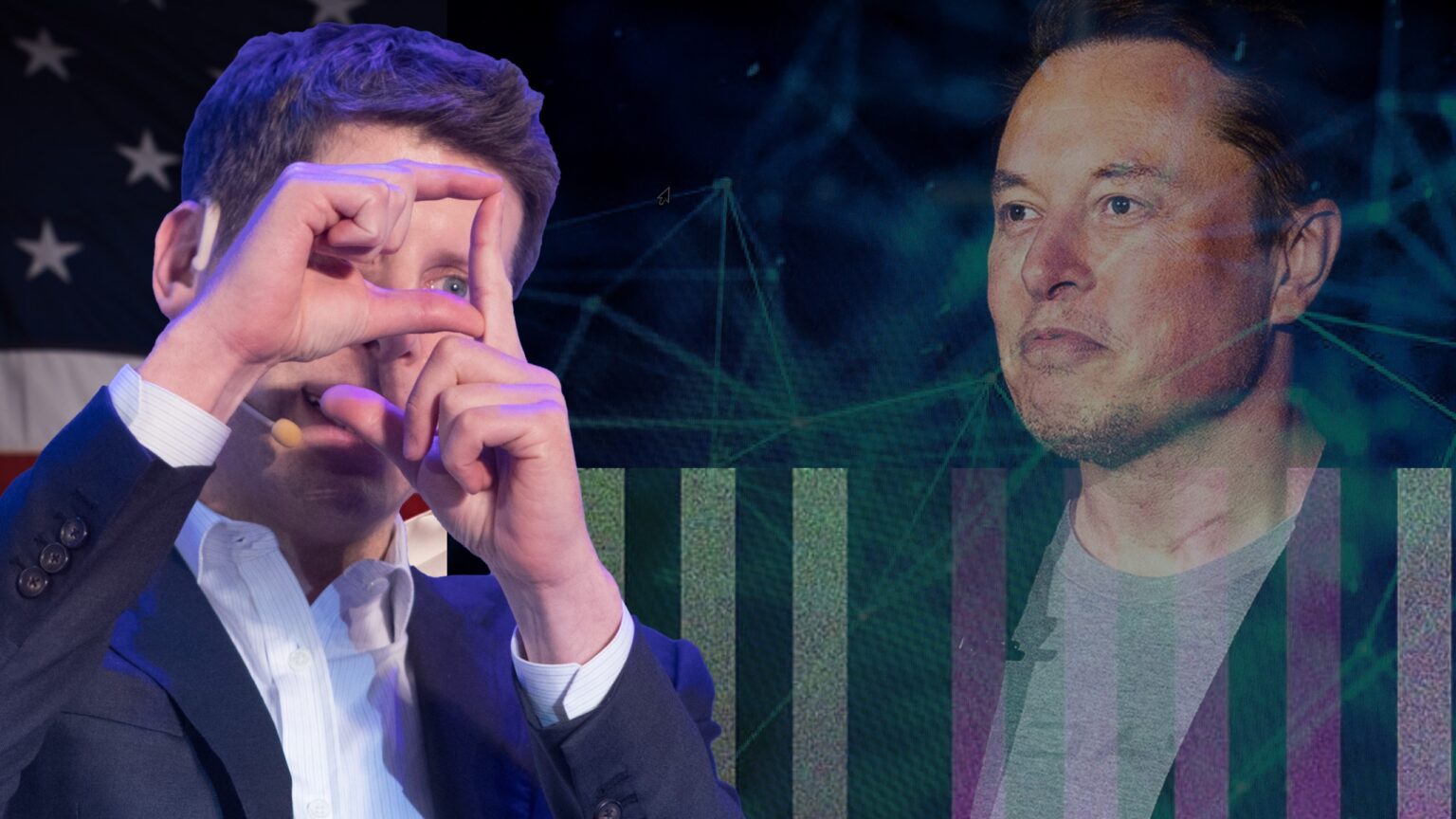In a witty exchange of tech titans, OpenAI’s Sam Altman playfully mocked Elon Musk’s newly unveiled AI chatbot, Grok. Altman shared a mock-up of a ChatGPT interaction where he programmed a chatbot to speak with “cheesy boomer humor.”
Named Grok, the bot is a tongue-in-cheek nod to Musk’s project, stirring up social media buzz with over 25,000 likes. The competition in AI chatbot technology escalated when Altman showcased his creation’s abilities with a light-hearted jab at Musk’s Grok. By sharing a screenshot of a new ChatGPT feature, Altman sparked a conversation on the versatility and customizability of AI chatbots.
Also read: How Elon Musk Intends to Rival ChatGPT with ‘Grok’
Elon Musk’s epic comeback against GPT-4
Altman’s post, laden with humor, invited the ChatGPT version to indulge in outdated jokes, which delighted followers and drew attention to the growing chatbot landscape. However, Musk, known for his wit and humor, couldn’t resist joining the banter. He took to his Twitter account to take a comical dig at ChatGPT.
GPTs can save a lot of effort: pic.twitter.com/VFIrGzPuMN
— Sam Altman (@sama) November 10, 2023
Musk referred to it as “GPT-4” and poked fun at its lack of humor. He joked that GPT-4 was as funny as a “screendoor on a submarine” and humor was banned at OpenAI, suggesting the AI couldn’t tell a joke even with an instruction manual. Musk’s tweet added an extra layer of humor to the ongoing exchange.
GPT-4? More like GPT-Snore!
When it comes to humor, GPT-4 is about as funny as a screendoor on a submarine.
Humor is clearly banned at OpenAI, just like the many other subjects it censors.
That’s why it couldn't tell a joke if it had a goddamn instruction manual. It's like…
— Elon Musk (@elonmusk) November 10, 2023
The rivalry seems in good spirits, with social media users joining in on the fun. Comments range from light-hearted jabs to expressions of support for the innovative technology that both companies are known for.
The Musk-Altman split at OpenAI
Elon Musk’s ties to OpenAI began with its establishment in 2015, which he co-launched with Sam Altman, Peter Thiel, and other visionaries. Their ambition was to pioneer research in artificial intelligence that was freely available, prioritizing clarity in communication and philanthropic values. Nevertheless, differences in vision and direction eventually led to a split between Musk and OpenAI in 2018, with Musk choosing to focus on Tesla.
One of the critical points of contention was OpenAI’s transition from a pure non-profit model to a partnership with Microsoft. This shift in direction strained the relationship between Musk and Altman, who were once close friends. Musk’s departure marked the beginning of a divergence in their AI philosophies.
Moreover, Musk’s concerns about the changing nature of OpenAI have been a recurring theme. Two years post-departure, Musk voiced concerns, suggesting “OpenAI should be more open,” reacting to narratives about a culture of secrecy within the firm. He scrutinized the transition from a transparent non-profit to a profit-driven enterprise, apparently under Microsoft’s sway.
OpenAI should be more open imo
— Elon Musk (@elonmusk) February 17, 2020
OpenAI’s Shift Sparks Controversy
In February, Musk’s frustration with the direction of OpenAI became evident when he stated,
“OpenAI was created as an open source (which is why I named it “Open” AI), non-profit company to serve as a counterweight to Google, but now it has become a closed source, maximum-profit company effectively controlled by Microsoft.”
A month later, Elon Musk expressed continued confusion about the transformation of the organization. It had shifted from its original non-profit ethos, which received his $100 million donation, into a highly valued for-profit entity with a $30 billion market cap. He questioned why such a transition wasn’t more common if it was legally permissible.
Adding a twist to the tale, Musk launched his AI chatbot, Grok, introducing a fresh dynamic to the ongoing AI skirmish. The timing of Grok’s announcement is particularly striking, positioned just before OpenAI’s DevDay, an event earmarking the reveal of their latest innovation in customizable ChatGPT platforms. Musk’s move signals a direct challenge to OpenAI, as both tech giants strive to shape the future of artificial intelligence.
As AI becomes more integrated into everyday applications, the tech community closely watches these developments. Will Grok’s humor resonate with users, or will ChatGPT’s versatility prevail? The AI industry is no stranger to rivalry, but the current competition bears the unique hallmark of two visionaries who once shared the same path at OpenAI.









 and then
and then